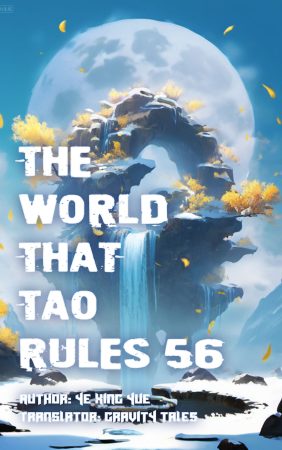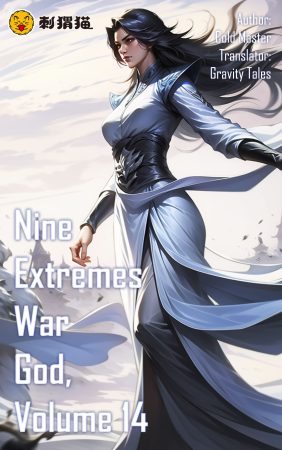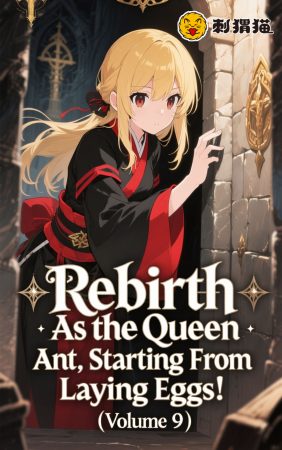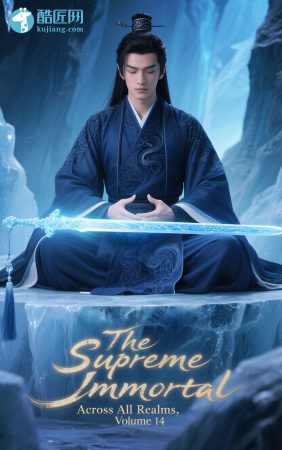Chapter 287
Our Discord Server: https://discord.gg/PazjBDkTmW
You can buy coins here to unlock advanced chapters: https://gravitytales.com/coins-purchase-page/
Chapter 287: Trials of the Spirit Law of Fate
“This tower is far from as small as you all imagine; inside it is a separate space. Therefore, to enter, you must pass through the spatial gate of each level.”
Liu Hufa gestured invitingly, “Everyone, please proceed. The power of the tower is limited, so if you enter late, it may close again.”
“Liu Hufa, what does this mean? Can we still come out?” someone asked.
“Of course, you can exit, but the rewards available on each level are limited, and they may not satisfy everyone,” Liu Hufa said just as numerous powerful auras erupted throughout the valley.
Since the slots were limited, it was time to see who would triumph!
“Weaker opponents shouldn’t think too much; just step back. You don’t qualify to participate.”
Si Jianyong and Wen Shu spoke softly.
Their auras sliced through the valley, making many cultivators feel as if swords and blades were at their throats. As Xie Fei’er revealed a cold gaze, most cultivators retreated.
Against these geniuses, numbers meant nothing, especially since not everyone had someone powerful like Yun Ye backing them. If they dared to complain, they would likely face severe consequences for their disobedience.
“Dao Sister, please participate in the trials quickly. We will monitor the situation.”
Xie Fei’er’s group urged.
They were all much weaker than Xie Fei’er and had no chance of competing for the final inheritance.
“…”
Xie Fei’er coldly glanced at Yun Ye before stepping directly into the spatial vortex, her aura completely vanishing.
“Anyone on the Qilin Rankings may enter.”
Si Jianyong spoke, and then he and Wen Shu stepped into the vortex.
Although it was just a single statement, no one dared to disregard it.
Among the cultivators present, not many had ranked on the Qilin Rankings; Kong Qu and Fenggong Xia were two of them.
The remaining three were unknown to Yun Ye, but not a single current prodigy from the Qilin Rankings was there; they were all over a hundred years old and had long achieved the law realms.
Yun Ye held little interest in these individuals and stepped through the vortex gate.
He left behind a group of disciples who silently watched as they departed.
At Cloud Heavenly Spirit Sect’s Emerald Lake, many disciples voiced their confusion, “Can’t we see what’s inside the tower?”
It was different from before; no projections were appearing from the tower. There was no glimpse of what Su Xinsan experienced or what challenges she faced.
“Ruins are created by ancient Powerful Figures and even sages; as long as they can still operate, blocking the Spirit Law is easy,” someone shook their head.
This statement left many feeling distressed, as it meant that everything happening next would be completely shrouded in mystery—they could no longer see the first-hand action.
…
After stepping through the vortex gate, Yun Ye arrived at a high platform.
Suddenly, he felt an unsettling sense of wrongness.
Without hesitation, he summoned the Rebirth Book.
“Fate: B (A+) → D (C+)”
“Has my Fate dropped?”
“Something is wrong; I should say my luck has decreased!”
Yun Ye realized that his Fate had risen from category C due to a boost in luck, not because of Fate itself.
This drop was outrageous—it was almost a complete reset.
Just as Yun Ye’s thoughts arose, a piece of information suddenly flooded into his mind.
“The Nine Lives Spirit Law Classics are the spoils of our sect. Although they are not Dao Classics, they have various marvelous uses. Unfortunately, such methods possess their own fates and cannot be obtained by force.”
“To this end, our sect has established the Creation Tower, capable of realizing countless possibilities, allowing the classics to evolve through nine trials, seeking to reach the summit and inherit the Nine Lives Great Law.”
“Regrettably, for three thousand years, though the moment of reincarnation has arrived, no one has passed the trials to acquire the ultimate Nine Lives Spirit Law… Is this what fate means?”
“Before each inheritor dies, the Spirit Tower will not reopen. Future trial participants, pursue your fate.”
“First trial: Know your fate.”
Yun Ye stood atop the high platform, surrounded by darkness. As this information flooded in, the scene around him changed rapidly, revealing a remote rural area.
This scene chose a farmer as its perspective and began to unfold his life.
From birth, the farmer experienced hunger and fullness, and by the age of two, he could help with household chores.
By the age of six, he was already working in the fields.
Boys and girls were born, one after another, with some dying; those fortunate enough to survive shared the burdens.
When a son was born, the parents rejoiced; when a daughter arrived, the parents sighed.
The family centered around the farmer, their eldest son. After the father passed away, the farmer became the head of the household.
He faced landlords and government officials, paying out of his harvest year after year, being exploited mercilessly.
Supporting several family members became extremely difficult, so he chose to give his elderly mother and younger sisters less food, ensuring only the male laborers were fed.
Even so, a drought turned all their efforts into nothing; the fields yielded no grain, and grain prices soared. Moreover, the government still demanded various bizarre taxes; otherwise, they faced dire consequences.
The farmer was forced to sell most of his land to pay taxes, but that was still insufficient. In desperation, he sold some of his sisters.
With that, he barely managed to cope with the drought and avoid the officials.
Yet all his land belonged to the landlords, and to survive, he could only rent land from them, which would reduce his already meager harvest. It was unlikely to sustain the family.
In the end, he starved to death.
There were plenty of people vying to farm the land; he could not compete.
“What led to the farmer’s family’s tragic fate?”
This question was the trial of the first level.
“What a classic question.”
Yun Ye sighed and fell into deep thought.
It truly was classic; a professional scholar would surely articulate it well, analyzing everything from society to the individual, from class to race, thoroughly breaking it down.
However, Yun Ye’s knowledge was neither systematic nor profound. Thus, when faced with this question, it initially seemed straightforward, but upon deeper reflection, he struggled to formulate an answer right away.
So, Yun Ye contemplated for a long time.
To be honest, he never expected to encounter such a question even in the world of cultivation.
Should he provide an answer suitable for this world, or one he personally believes to be correct? What does this so-called Nine Lives Spirit Law Classics trial consider the right answer?
After a moment, Yun Ye abandoned this line of thought. He had no information to prove his guesses, so he could only pick one randomly and gamble on his luck.
“An anthology with its own fate… Let’s take a chance; a fifty-fifty probability—why not?”
Yun Ye lay down, closed his eyes, and began to reflect.
With the support of the Spirit Law, he could perform some mental deductions to avoid overlooking many details.
Following general logic, the reasons for the farmer’s tragic fate naturally start from the most recent events and stretch back to the oldest.
The most immediate reason was the exploitation and oppression by the landlords. If the landlords hadn’t raised grain prices during the famine years, forcing farmers to sell their land, the farmer’s family wouldn’t have collapsed so quickly and ultimately starved.
Next was the corruption of the government, which was eager to collect taxes but did nothing to alleviate the suffering of farmers during a famine. Instead, it continued to impose various heavy taxes, worsening the farmers’ burdens and forcing them to sell land to survive, leading to their demise.
Among these two reasons, the land monopolization by landlords is the more surface-level cause.
One can only say that as long as humans have desires and face various natural disasters, the lowest-tier farmers will always be exploited, and their destruction will sustain the interests of other classes.
The existence of the government represents a deeper reason. If the government system were better and less corrupt, able to suppress landlords, the plight of farmers wouldn’t decline so rapidly. Unfortunately, in the context of ancient history, a clean government was impossible.
Historically, periods with wise rulers often saw relatively stable and prosperous nations, as these rulers understood that the people were the foundation of stability, thus actively suppressing the gentry class…
Of course, this assumes there is the capability to suppress the gentry; only in such cases can one truly call a ruler wise.
During such times, ordinary beings would fare better, and there would be no peasant uprisings that could topple nations.
Natural disasters and human calamities are the primary reasons for the tragic fates of the lowest-tier farmers.
But looking at history in a broader context, this is clearly just one of the causes.
There are other critical reasons that cannot be overlooked.
For instance, explosive population growth.
Even if the government does not exploit, and landlords do not oppress, the feudal dynasty will inevitably face a situation where land runs out due to population explosion and forced downsizing will emerge.
In other words, insufficient productivity, combined with uncontrollable population growth, is also one of the reasons for the tragic fate of lower-tier farmers.
If modern people experienced the lives of ancient farmers for a few days, they would likely cry and return to being overworked employees.
In the modern world, one can choose not to marry or buy a house, staying at home to slack off, but in ancient times, working hard barely kept one from starving; the difference is vast. A comparison makes it difficult to claim that modern lower-class individuals have it worse.
The direct cause of this situation is indeed the lack of productivity.
Even though the upper class occupies ninety percent of the resources, if one case has a total of ten thousand and another one hundred million, the final results are worlds apart.
So, the question arises: if resources are insufficient, wouldn’t it be better if farmers did not have children? Why not give all the resources to the landlords instead—who are the commoners to deserve to live?
But that wouldn’t work either.
Let alone whether uneducated ordinary beings possess the self-control to do this, even if they do, if ordinary farmers disappear, children born in landlord households would gradually become collateral branches and eventually evolve into the same surname and fall into the class of commoners.
Landlords and bureaucrats have no reason to exist if they do not exploit the lower classes and have no subordinates serving them; even enforced reproduction would lead to an overflow of commoners.
Such circumstances are especially common in eras marked by years of conflict, where the government mandates that young people must marry and have children by a certain age, otherwise facing monetary penalties—there are plenty of ways to increase the number of slaves.
This is the situation understood by Yun Ye. One could simplify it as landlord exploitation, but reaching this stage where it just continues to cycle does not resolve the issue.
Once he understands the essential situation, he can devise targeted arrangements. Not to say he can escape the cycle, but at least he can extend it.
Yun Ye submitted his answer, and then the words of the First trial shattered, revealing the word "Passed."
This made Yun Ye ponder.
Next, he entered the second level.
In the second level, the farmer’s story continued to unfold, but the perspective expanded to the entire county.
As exploitation and oppression intensified, and another severe drought struck, thousands of disaster victims appeared. Someone raised an arm and called out, beginning a vast peasant uprising.
The question for this level was how to successfully complete the uprising.
Before answering this question, the scene shifted to provide much background about this world.
It felt similar to the period before the Tang Dynasty, where the power of aristocratic families was very strong, and there were many independent warlords.
In this era, peasant uprisings not only had to face government suppression, but local rulers would fiercely resist for their own interests, no matter which city the rebels went to.
If the officials did not adopt a non-resistance policy, the chances of a successful peasant revolt were remarkably low.
The difficulty was at its peak.
However, this challenge was still not as high as in modern times, so Yun Ye simply copied the answer.
Moments later, the scene automatically evolved according to Yun Ye’s answer.
Yun Ye had already performed Spirit Law deduction, and with complete memory, he filled in all the details, covering every possibility.
All scenarios encountered during the deduction were resolved one by one.
In the end, this path was confirmed as a possible way to achieve a change of dynasty.
Thus, he passed the second level and entered the third level.
The questions that followed became increasingly complex, gradually shifting from mortal dynasties towards immortal cultivation dynasties.
However, Yun Ye noticed that with each answer he provided, the questions edged closer to the world he wanted to create—the world of Great Harmony.
By the time he reached the seventh level, the question had transformed into how to struggle under the rule of true beings and provide ordinary beings with a more dignified way of life, although it still began with the poor.
At this point, Yun Ye began to fail, as his answers repeatedly could not be deduced or verified.
This forced him to reflect on the questions and gradually become aware of many issues he had previously overlooked.
After exploring various solutions, he finally completed the seventh level. The eighth level was even more despairing, as a presence stronger than true beings emerged, representing enemies within the ruling group.
The choices available to Yun Ye became extremely limited, and no matter how he chose, he could not achieve final victory.
Ultimately, he had to shift his thinking, beginning a mental transformation centered around family, defining the significance of family existence as "creating the world of Great Harmony."
Starting in this way, he gradually moved from being poor to wealthier, branching out and growing into a Spiritual Law family, until the family gained power surpassing that of true beings and overthrew the rulers…
By the eighth level, the chance of success for mortals had nearly vanished, and it had to be a matter of generational inheritance for there to be a glimmer of hope.
With a long enough span of history, whether a thousand years or a hundred thousand, there would eventually be someone who would create a family that would not change until it altered the world.
Yet, while this probability was low, it was still significantly higher than Yun Ye’s previous proposals.
Before, Yun Ye had planned on achieving success in a single lifetime, exhausting all possibilities; after all, nothing is absolute, and achieving success in one lifetime was not impossible.
However, if the likelihood was so low that no individual could even emerge throughout the entire history of the Red Heaven realm, he wouldn’t pass the trials.
Such a world suddenly facing a Great Disaster, leading to the complete extinction of the ruling class, was entirely dismissed here.
Then came the ninth level…
At this level, Yun Ye passed directly without any clear reason.
In this empty level, he still stood on the platform; the only difference was the addition of a book.
At a brief moment of sight, Yun Ye grasped all its information, including its origin, its power, and its knowledge.
This was the Nine Lives Spirit Law Classics!












